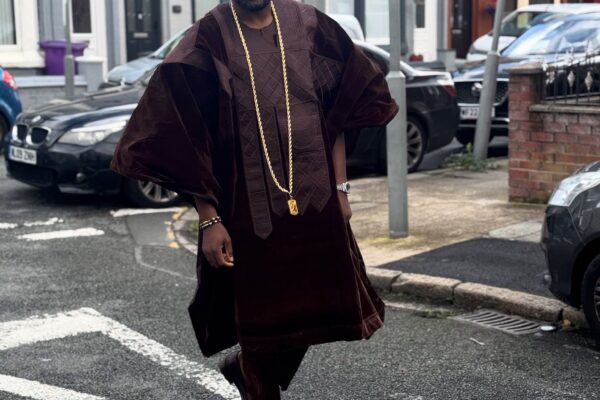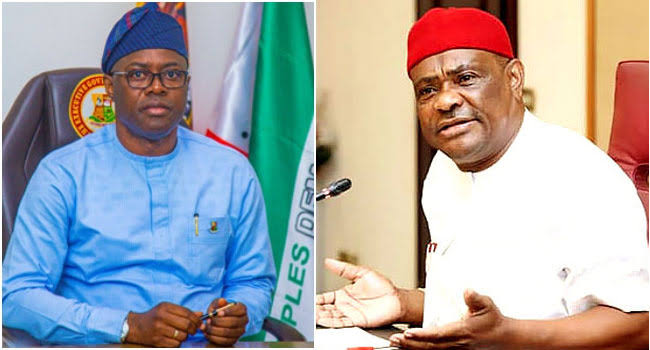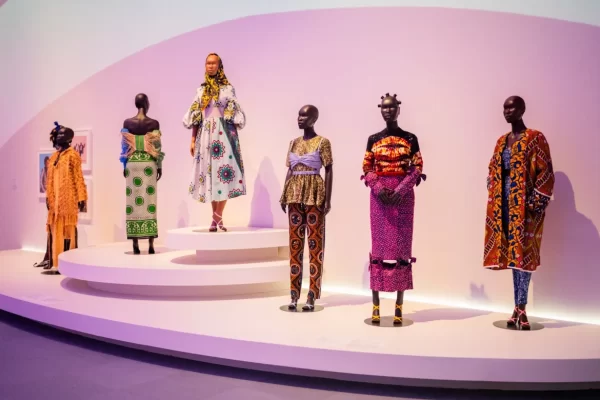
UK-Based Designer, Remi Isaac: “Fashion Can Drive Revenue and Boost Nigeria’s Global Image Like Afrobeats”
Oluwaseun Odewole , professionally known as Remi Isaac, is one of the rising voices in Nigeria’s fashion scene. Although now based in the United Kingdom, his creative roots, inspiration, and design philosophy remain deeply tied to Nigeria. In this interview, he speaks about his journey, the challenges of building a brand abroad, and why he believes the fashion industry can become a powerful economic driver for Nigeria—just like Afrobeats. ⸻ Can you take us back to the beginning of your journey in fashion? What inspired you to choose this path? “Fashion, for me, started from curiosity and a genuine desire to always look good. I’ve always believed that appearance speaks before you do—people judge you by how you present yourself. Looking good isn’t just about style; it’s a strategy. My family has always supported my passion for fashion. I studied different designers from afar until I officially began my journey in 2019, after meeting Ife Akinwumi, Creative Director of Hiphe Davids “Chattered Tailor”. Under his mentorship, I took a four-month crash course in executive fashion design. With his guidance, I launched my brand, Remi Isaac—a blend of Yoruba and English names that reflects a global yet rooted identity. My close friend Wale Tanimowo designed the logo, It was important that it conveyed creativity beyond tailoring. That’s how the Remi Isaac brand was born.” ⸻ You’re now based in the UK. How has relocating influenced your creativity, and what challenges have you faced as a Nigerian designer abroad? “It’s been tough—relocating to the UK wasn’t easy. When I first arrived about three years ago and told people I was a tailor, the reactions were often limiting: “Do you do alterations?” or “Can I give you Ankara?” or “Hope you’re not too expensive?” Among Nigerians especially, there’s still a mindset that reduces tailoring to something small or basic. Many don’t see the creativity behind it—they see the tailor, not the brand. I’ve always tried to change that perception. Another major challenge has been building trust. As an emerging designer, people often undervalue your work or try to underprice you, even when your quality rivals—or surpasses—bigger brands. I’ve sometimes told new clients, “Don’t pay me upfront. I’ll make the outfit, send it to you, and if you’re not happy, return it.” That confidence often changes their perception immediately. Gradually, we’ve broken those barriers through consistency, quality, and integrity. We don’t compromise on fabric or finishing, and that’s what keeps customers coming back. Some UK clients have even told us they bought expensive clothes from other designers that didn’t match our quality. That, for me, is the biggest compliment.” ⸻ Do you think the Nigerian government is doing enough to support the fashion industry, especially for designers in the diaspora? “Honestly, I don’t think the Nigerian government understands the creative industry as much as it believes it does. If it did, we’d see more deliberate policies to support it—because that’s the future. Fashion shouldn’t be left out. Designers are already contributing to the Nigerian economy through exports. For instance, I ship products in and out of Nigeria every month to the UK. That’s direct economic activity contributing to GDP. If the government truly wants to make Nigeria a global player, it must invest in the creative sector, especially textiles. Most of our fabrics—even Ankara—are imported from China, Turkey, or Italy. Imagine the impact if we had at least six well-equipped textile factories in Nigeria. That alone would transform the industry.” ⸻ What kind of government policies or initiatives would you like to see for the fashion sector? “Policies must be tailored to the industry’s real needs. The government should sit down with leading designers in Lagos, Abuja, and Port Harcourt—listen to them, understand their challenges, and co-create solutions. Those at the top already know what the sector needs: better textile production, access to financing, export support, and vocational training. If policymakers engage these professionals, they’ll get a clear roadmap for sustainable industry growth.” ⸻ Where do you see Nigerian fashion in the next five to ten years? “Nigerian fashion is on the verge of a global breakthrough—just like Afrobeats. In ten years, it will be one of our strongest cultural exports. Nigerian designers are passionate, hardworking, and committed to quality. Fashion will soon become one of the key contributors to Nigeria’s positive global image. The creativity, energy, and authenticity we bring are unmatched.” ⸻ Where do you see the Remi Isaac brand in five years? “Remi Isaac is still a young brand, but the vision is global. We already ship to clients across different continents, and the goal is to have physical stores around the world. We recently updated our branding to include “Remi Isaac — Made in Nigeria.” Every label and tag now proudly carries that message. It’s our way of promoting Nigeria’s image through fashion—showing the world that excellence can be made in Nigeria.” ⸻ How do you attract and retain young, passionate designers in your team? “At the moment, my team is small. I focus more on creative direction, while my manager—who started as a tailor—handles a lot of the online and operational aspects. To attract good people, you must first show love and sincerity. Treat your team like family, not just employees. When they see that you genuinely care about them, they’ll give you their best.” ⸻ What advice would you give to young Nigerians entering the fashion industry? “Find a mentor. Mentorship is key—it helps you navigate challenges you can’t foresee on your own. Beyond that, stay consistent, persistent, and passionate. Without passion, you won’t survive the long journey.” ⸻ How important is technology in your design process? ” “Technology is everything. From graphic design to digital embroidery, tech makes work faster, smarter, and more innovative. We live in a digital age—if you don’t adapt, you’ll be left behind. I’m constantly learning, researching, and keeping my mind open to new methods. Staying dynamic keeps creativity alive.” ⸻ Do you incorporate Nigerian fabrics like Aso Oke or Ankara in…


